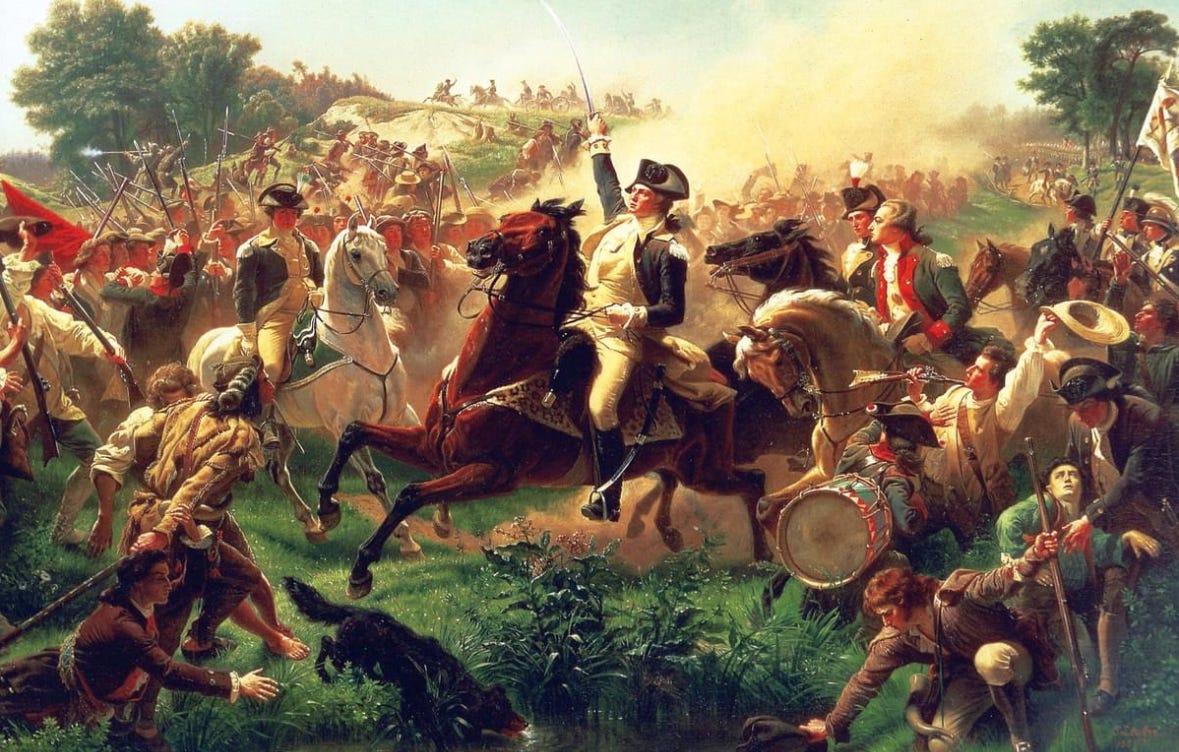Today is the anniversary of the 1778 Battle of Monmouth during the American Revolution, a battle which proved fatal to the career of cowardly Gen. Charles Lee but which showed Gen. George Washington at his most energetic and commanding. The Marquis de Lafayette said of Washington at Monmouth, “I thought then as now I had never beheld so superb a man.”
The Battle of Monmouth Court House was part of the Philadelphia Campaign of 1777–1778. Washington had sent his second-in-command Gen. Lee to attack the British troops under Sir Henry Clinton from behind, as Washington brought up the rest of his army from winter quarters at Valley Forge. Lee made tactical errors—most especially, he suddenly decided to retreat back to Valley Forge and give Clinton time to regroup! Amidst Lee’s none-too-orderly retreat, Washington arrived on the scene.
George Washington was famous for how self-controlled he was, how he usually was able to keep his naturally fiery temper—and his language—under impressive calm. But there is a time and a place for everything, and it is not surprising that Lee’s disastrous mistake, at a crucial moment, and possibly as a prelude to mass casualties, should make Washington explode into a rage that became legendary among those who witnessed it. Gen. Charles Scott said Washington’s furious rebukes to Lee ensured the “leaves shook on the tree.”
Fortunately, Washington had arrived in time to save the day. He rode through the ranks of American soldiers, inspiring them, reorganizing them. Soon the two armies were again fighting. With both the weapons of the enemy and intense heat causing casualties among his troops (and his own horse’s death), Washington decided to halt the fighting for now. The Americans could see the British campfires that night, but in the morning they found that the British had slunk away in the night, leaving their campfires burning. The British had escaped, but the Americans still held the field. From their perspective, it was a victory.
While numerous Americans showed courage that day—including Gens. Anthony Wayne and Nathanael Greene—one man’s inspiring courage and confidence stood out in everyone’s minds. Washington had turned a defeatist retreat into a victory that cemented his status as a “superb” leader and brave hero, the commander who led from the front and could make not only the leaves shake on the trees, but the British soldiers—and incompetent American subordinates—shake in their boots.




